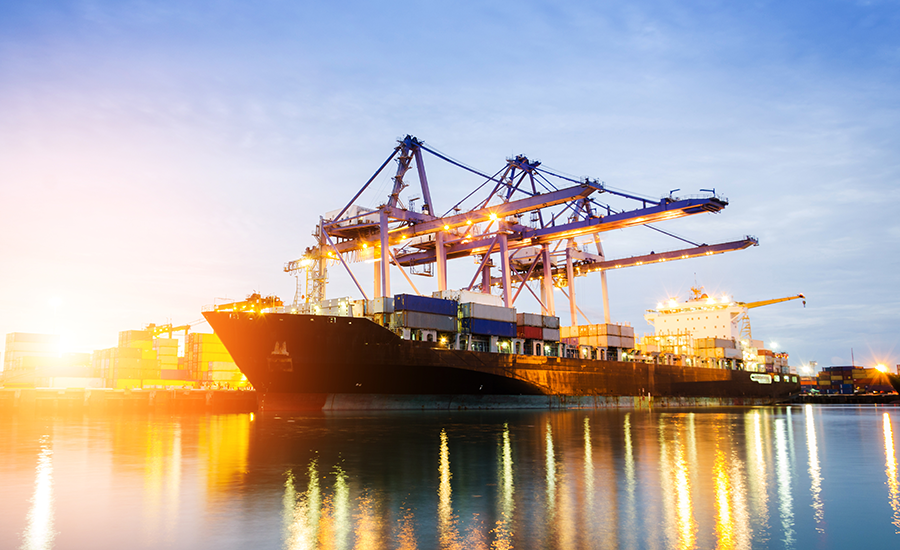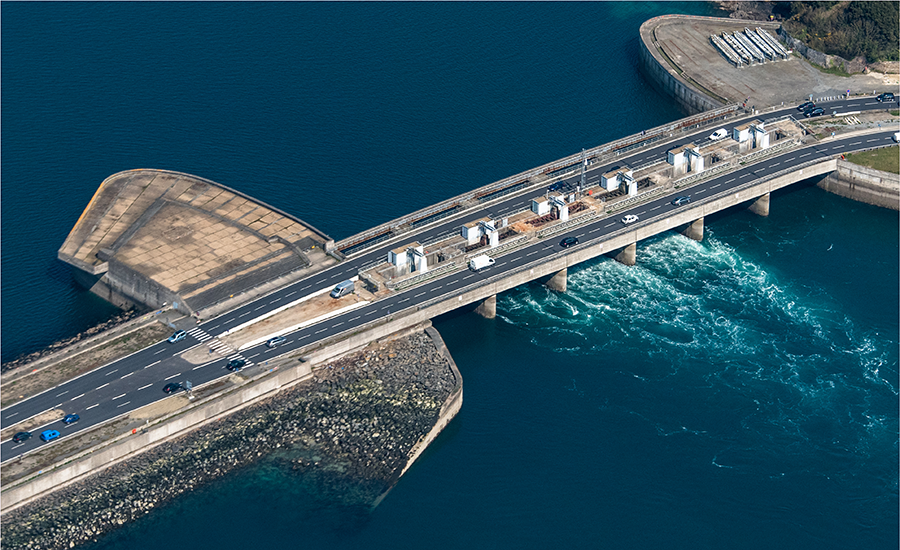The Organisation for Economic Cooperation and Development (OECD) defines the Blue Economy as ‘all economic sectors that have a direct or indirect link to the oceans, such as marine energy, coastal tourism and marine biotechnology.’ Other organisations have their own definitions, but they all stress the economic and environmental importance of seas and oceans.
Header image: Our oceans are of economic and environmental importance
To this end there are a growing number of initiatives focused on not only protecting the world’s seas but promoting economic growth. At the start of 2021 the Asian Development Bank (ADB) and the European Investment Bank (EIB) joined forces to support clean and sustainable ocean initiatives in the Asia-Pacific region, and ultimately contribute to achieving Sustainable Development Goals and the climate goals of the Paris Agreement.
Both institutions will finance activities aimed at promoting cleaner oceans ‘through the reduction of land-based plastics and other pollutants discharged into the ocean,’ as well as projects which improve the sustainability of all socioeconomic activities that take place in oceans, or that use ocean-based resources.
ADB Vice-President for Knowledge Management and Sustainable Development, Bambang Susantono, said ‘Healthy oceans are critical to life across Asia and the Pacific, providing food security and climate resilience for hundreds of millions of people. This Memorandum of Understanding between the ADB and EIB will launch a framework for cooperation on clean and sustainable oceans, helping us expand our pipeline of ocean projects in the region and widen their impacts’.
The blue economy is linked to green recovery
In the European Union the blue economy is strongly linked to the bloc’s green recovery initiatives. The EU Blue Economy Report, released during June 2020, indicated that the ‘EU blue economy is in good health.’ With five million people working in the blue economy sector during 2018, an increase of 11.6% on the previous year, ‘the blue economy as a whole presents a huge potential in terms of its contribution to a green recovery,’ the EU noted. As the report was launched, Mariya Gabriel, Commissioner for Innovation, Research, Culture, Education and Youth, responsible for the Joint Research Committee said; ‘We will make sure that research, innovation and education contribute to the transition towards a European Blue Economy.’
The impact of plastics in oceans is well known and many global initiatives are actively tackling the problem. At the end of 2020 the World Economic Forum and Vietnam announced a partnership to tackle plastic pollution and marine plastic debris. The initiative aims to help Vietnam ‘dramatically reduce its flow of plastic waste into the ocean and eliminate single-use plastics from coastal tourist destinations and protected areas.’ Meanwhile young people from across Africa were congratulated for taking leadership roles in their communities as part of the Tide Turners Plastic Challenge. Participants in the challenge have raised awareness of the impact of plastic pollution in general.
But it isn’t just the health of our oceans that governments and scientists are looking at. There is growing interest in the minerals and ore that could potentially be extracted via sea-bed mining. The European Commission says that the quantity of minerals occupying the ocean floor is potentially large, and while the sector is small, the activity has been identified as having the potential to generate sustainable growth and jobs for future generations. But adding a note of caution, the Commission says, ‘Our lack of knowledge of the deep-sea environment necessitates a careful approach.’ Work aimed at shedding light on the benefits, drawbacks and knowledge gaps associated with this type of mining is being undertaken.
With the push for cleaner energy and the use of batteries, demand for cobalt will rise, and the sea-bed looks to have a ready supply of the element. But, the World Economic Forum points out that the ethical dimensions of deep-sea cobalt have the potential to become contentious and pose legal and reputational risks for mining companies and those using cobalt sourced from the sea-bed.
Energy will continue to be harnessed from the sea.
But apart from its minerals, the ocean’s ability to supply energy will continue to be harnessed through avenues such as tidal and wind energy. During the final quarter of 2020, the UK Hydrographic Office launched an Admiralty Marine Innovation Programme. Led by the UK Hydrographic Office, the programme gives innovators and start-ups a chance to develop new solutions that solve some of the world’s most pressing challenges as related to our oceans.
The UK’s Blue Economy is estimated to be worth £3.2 trillion by the year 2030. Marine geospatial data will be important in supporting this growth by enabling the identification of new areas for tidal and wind energy generation, supporting safe navigation for larger autonomous ships, which will play a vital role in mitigating climate change, and more.
The Organisation for Economic Cooperation and Development (OECD) has published its Science Technology and Innovation Outlook 2021: Time of Crises and Opportunity report.
Published at the beginning of 2021, the report focuses on the ‘unparalleled mobilisation of the scientific and innovation community’ in response to the covid-19 pandemic. The report indicates that newly funded research initiatives have been established by public research agencies and organisations, private foundations and charities, while the health sector has similarly invested in an array of research programmes worth billions of dollars in record time.
The pandemic has led an unprecedented mobilisation of the scientific and innovation community
However, the report also exposes gaps in overall system resilience to future crises. ‘It’s a wake-up call that highlights the need to recalibrate science, technology and innovation (STI) policies, so that they better orient research and innovation efforts towards sustainability, inclusivity and resiliency goals,’ the report asserts.
Highlighting the rapid response by governments around the world, the report indicates that in the first few months of the pandemic, national research funding bodies spent around $5 billion on emergency financial support. This includes $300 million in Asia-Pacific, excluding China, over $850 million in Europe and more than $3.5 billion in North America. At the same time, research efforts led to around 75,000 scientific publications on covid-19 being released between January and November 2020, the report says. The largest share came from the US, followed by China and the UK. Research databases and scientific publishers removed paywalls so that covid-19 related information could be quickly shared.
Research efforts led to around 75,000 scientific publications on covid-19 being released between January and November 2020
‘These developments mark important changes that could accelerate the transition to a more open science in the longer run,’ the report says. It is also noted that not only have researchers continued their work with more than three quarters of scientists indicating that they had shifted to working from home at some point in 2020, but almost two thirds experienced, or expected to see, an increase in the use of digital tools for research as a consequence of the crisis. The report also mentions the contribution of the general public, with so called ‘frugal innovations’ in response to shortages of medical equipment and emergency supplies.
Looking to the future of the research community, the report says that postgraduate training regimes require reform to support a diversity of career paths. ‘The crisis has shown that the need for STI expertise is not limited to the public laboratory; it is also important for business, government and NGOs […] Reforming PhD and post-doctoral training to support a diversity of career paths is essential for improving societies’ ability to react to crises like covid-19 and to deal with long-term challenges like climate change that demand science-based responses […] There has been a 25% increase in the number of people with PhDs in OECD countries over the past decade with no corresponding increase in academic posts. The pandemic is expected to make matters worse, more than half of the scientists participating in the OECD Science Flash Survey expect the crisis to negatively affect their job security and career opportunities,’ the report says.
Post-graduate training regimes require reform to support a diversity of career paths
While still in the midst of the pandemic, the report stresses that STI policies now need to be reoriented to tackle the challenges of sustainability, inclusivity and resiliency. ‘In the short-term governments should continue their support for science and innovation activities that aim to develop solutions to the pandemic and mitigate its negative impacts, while paying attention to its uneven distributional effects. Science for policy will remain in the spotlight as governments seek to strike the right balance in their response to covid-19. This will effect public perceptions of science that could have long term implications for science-society relations.’
The report concludes that governments now have the task of developing public sector capabilities to deliver more ambitious STI policy. This will require engagement from stakeholders and citizens in order to capture a diversity of knowledge and values.
DOI:10.1787/75f79015-en
















